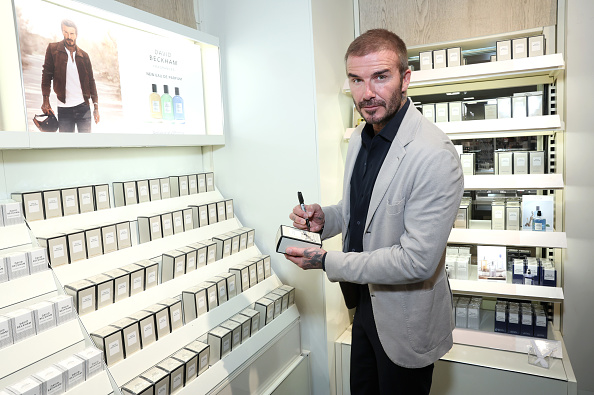Why Brand Beckham’s battle with the counterfeiters is no open goal

While David Beckham may have his hands full with Inter Miami’s pre-season preparations, the former England captain will have one eye on the lawsuit his company DB Ventures has filed against various sellers offering counterfeit designs under the brands “David Beckham,” “Beckham” and other trade marks.
The UK’s counterfeit industry is estimated to have reached over £8bn and this is in trend with the global outlook, as counterfeits account for an increasing volume of imports and exports.
The challenge with a brand as widely reputable as David Beckham is the amount of investment and portfolio monitoring that is required. Trade mark rights are territorial in that you are only protected in the location in which you apply to register, and DB Ventures has registered more than 150 trade marks in different territories with some dating back two decades.
There has been sustained and substantial investment in that brand portfolio globally, and it is no surprise that they are now seeking to enforce those rights in the face of a growing number of counterfeit sellers.
The claim made in the US submits that the use of these marks by counterfeiters will adversely affect the distinctiveness and the reputation of the trade mark.
The existence of a significant amount of counterfeiters is argued to dilute the distinctiveness of DB Ventures’ marks, as consumers might struggle to detect between vendors when judging authenticity, while poor quality products sold by counterfeiters under those marks could damage the reputation of a brand intended to be associated with high quality, reliable products.
Counterfeiting is the only area in trade mark law that is harmonised around the world to attract criminal sanctions, in addition to being an act of civil tort in the case of trade mark infringement. If found guilty, a person can be fined or sent to prison in both the UK and the US for selling and dealing in counterfeit products.
As such, the repercussions faced by the online sellers who are named in the claim are significant and serious.
However, the difficulty with these sorts of online counterfeit disputes is not bringing the claim, but serving the claim on the defendants who may be based overseas, even if their accounts are US or UK facing.
A further challenge arises in ensuring that you stop the supply at the source – at designing and manufacturing levels, for example – rather than at the retail and distribution points.
Even if the retail accounts were injuncted, without the manufacturer being similarly injuncted, the latter can simply target its supply to other retailers.
In most jurisdictions, obtaining information about the manufacturer from retailers that are infringing is a routine part of the litigation process.
Beckham’s globetrotting career saw him play for teams based in fashion capitals such as Milan, Paris and Madrid, and it is the enforcement strategy once information about the counterfeit manufacturers has been obtained, particularly if action needs to be taken in overseas territories, where things will become significantly challenging for DB Ventures.
Lakmal Walawage is a Partner and Head of Intellectual Property at JMW Solicitors in London.